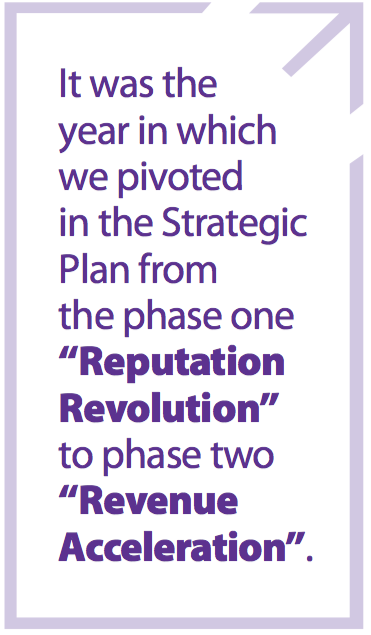
The Caribbean economy, while slowly emerging from the 2007/2008 global financial epidemic, has been crippled by the COVID-19 public health pandemic that heaped further havoc upon all economic and social life. Within this destructive, dreadful, existentially threatening context, our task has been to keep The University of the West Indies (UWI) abreast and ahead and rising to the expectations of stakeholders.
I am pleased to report, that because of the persistence of commitment from our caring and courageous university community and its allies we have achieved the objective of delivering our services as mandated. We succeeded in the face of the COVID scourge, and the illness and death visited upon our campus and general communities, to achieve the widely considered impossible objective.
We kept our classrooms available to our students; converted hundreds of their academic programmes to online, remote formats, took them through examination processes and on to graduation. We are proud of this excellent achievement. We honoured our pledges to our students and their families. This is our core business and we succeeded in banishing all doubt from our doors.
During the year, the university skillfully managed the double agenda of building out its academic reputation as a first-class, globally-respected enterprise while deepening strategic plans to accelerate non-government revenue-generation. It was the year in which we pivoted in the Strategic Plan from the phase one "Reputation Revolution" to phase two "Revenue Acceleration". We have become known as an enterprise of integrity that delivers upon its promised objectives. We are also known as an activist university that stands up for our stakeholders in meeting their most dire challenges.
On the reputation side, we are happy to report that in 2020, the Times Higher Education presented us with a Triple 1st Ranking: first in the Caribbean; top 1% in Latin America and the Caribbean; top 1% in the Golden Age category of universities in our 50-80 years cohort. This is a magnificent performance achieved within the context of global competitiveness that reaffirmed the enlightenment of our leadership and the correctness of our collective strategy.
Meanwhile, we met head on the challenges associated with the impact of regional economic decline upon our revenues as a publicly funded university. There is no escaping the significant negative consequences of the regional economic catastrophe upon the operations of the enterprise.

The challenge has been to seek to arrest and stabilize the decline in government contributions; settle as far as possible the enormous public debt accumulation on our balance sheet; and suppress the annual impairment of millions of dollars in respect of this debt that weakens our financials. On the other hand we went about the serious business of radically enhancing revenue generation as part of an entrepreneurial exercise intended to offset balance sheet leakage and promote the financial health of the enterprise.
We set out on this path in a scientific, strategic fashion. University leadership in our developing nations' context is not an ad hoc affair. It is at once an art and a science. In short time we saw positive results from the collective efforts of some campuses.
At the core of this strategy was the importance of facilitating the transition from the 30-year-old deficit financing model to the balanced budget approach. The university grew significantly within the mutually agreed deficit financing business model. The time has come to drive forward with the balanced budget approach in which frugality rather that the brutality of austerity holds the centre. Frugality is undoubtedly the mother of future growth. Austerity is the anchor of endless decline.
The Chairman of the University Grants Committee, the Honourable Colm Imbert, agreed that outgoing chair, Honourable Prime Minister of Barbados, Mia Mottley, would chair a sub-committee to bring these discourses to maturity. Working with the Honourable Prime Minister Gaston Browne of Antigua and Barbuda, and regional finance ministers, the committee brought matters to maturity and closure. It affirmed that the governments and the university should enter into a new phase of mutual bonding and trust in order to move forward on the same page to prosperity. This is the new arena in which the future is being forged.
Management is now empowered with better understanding to build out the new entrepreneurial UWI in order to close the US$25 million deficit within the multi-campus, consolidated eco-system. Government arrears that stood in 2015 at a record high of US$117 million is now reduced to US$45 million. Already the new commitment is yielding significant results.
Coming out of our 2019 Management Strategy Retreat we rolled out the New Financial Plan 2020 to 2025. In addition to implementing a 10% cut in expenditure, it proposed a 10% increase in entrepreneurial revenue. A multimillion dollar revenue strategy is being implemented that focuses on new markets for our academic services.
Already very good short-term results are being reported with multimillion dollar contracts and agreements signed and being executed. Agreements to take the university to the regional capital market are in place and 2022 will witness the roll out of these measures. Short- and medium- term strategies, therefore, are in place to see the university meet its revised self-financing targets. These strategies were promised. Outcomes will be delivered.
The Revenue Revolution, then, is well on its way in a new and unprecedented fashion. It's a moment that was imagined and is being managed. It was planned and is being implemented. The activist university will honour its pledges and maintain its strategic integrity.
We are not afraid of the volatile world; we have visions for it and energy to meet it face on as an example of Caribbean resilience and thriving. We are amongst "the best in the developing West" and have shown the significance of such a hard-earned status.
The year in review, then, was a period of academic prosperity in the face of the regional financial and health ferocity faced by the stakeholder family. We stood our ground and defended our communities and nations, serving them as we are mandated to do. The UWI is in a good, strategic position; to erase tomorrow what is today's deficit. We are grateful for the extraordinary support received during the year. It will be the seed of tomorrow's fruit.

Professor Sir Hilary Beckles,
Vice-Chancellor,
The University of the West Indies